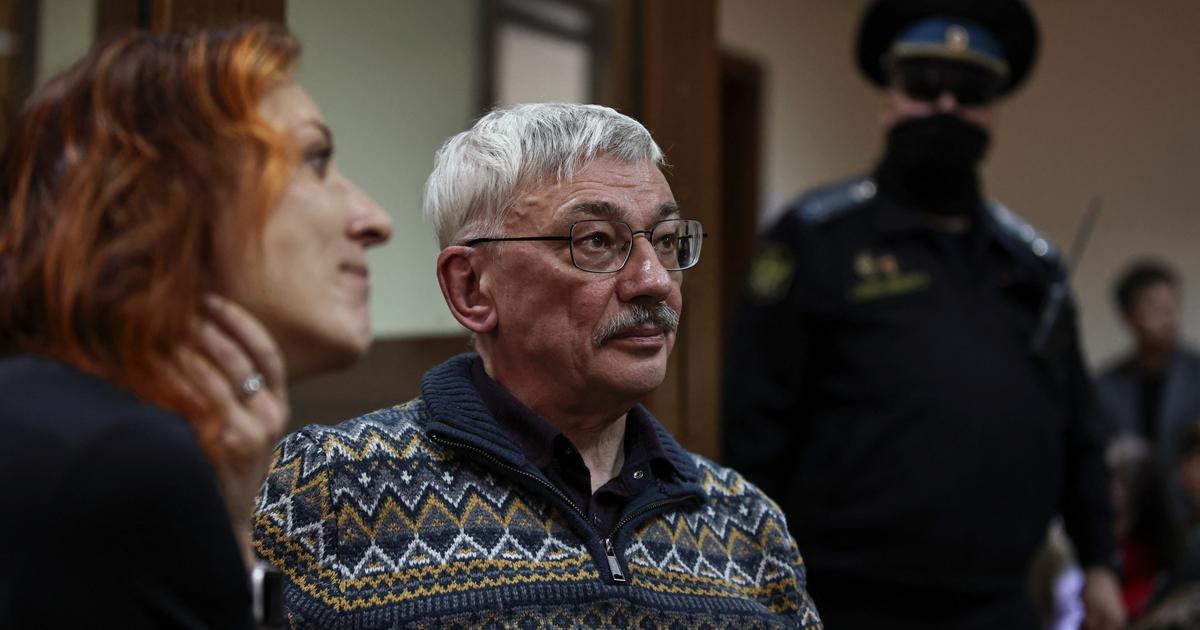On December 28, 1996, his father was only a member of the PP, but that day he was thrown red paint and sulfuric acid for the first time. "And they didn't stop until they killed him on June 25, 1998."
"And what happened next?"
"My older brothers left the Basque Country and then my mother did, but I decided to stay here. I closed myself in my house, in my work, in my hatred and in my silence. For many years. Until 2013, I decided to tell my story on a radio show.
Some people need a crutch to be able to walk. Naiara Zamarreño does it supported by a smile. Sitting on a terrace in Rentería (Gipuzkoa), she explains what has changed in her life and that of her village since her father was killed. It does so in line with the controversy raised by the inclusion of ETA terrorists in the electoral lists of EH Bildu and the reaction of some PP militants, such as Isabel Díaz Ayuso, who maintain that ETA is still alive.
In 1998, Rentería was one of those Gipuzkoan towns – like Hernani, like Andoain – where terror dominated everything: the hooded men came to burn 27 times the Casa del Pueblo – headquarters of the PSE-PSOE – and ETA had murdered 20 people until Manuel Zamarreño – Naiara's father – became the 21st. Then, once ETA announced in October 2011 that it was laying down its arms, the situation changed. At first very timidly and, little by little, more important steps were taken. In 2017, Julen Mendoza, the then mayor of EH Bildu, organized a public act of homage to the victims in which, among other people hit by violence, Juani Pérez, the widow of José Luis Caso —another PP councilor murdered by ETA—, and Naiara Zamarreño participated.
"I know there are people who don't understand it, even in my own family. Maybe because they live it from outside the Basque Country and I here. I have no choice but to live with the enemy every day. And I've learned how to do it. My children live here and I want them to learn to live without hatred. It is a personal effort to build a peaceful society, and for them to speak of their aitona [grandfather] with pride. That is why it makes me angry that, every time there are elections, four or five appear who, for political interests, without knowing what is really happening here now, ruin all this effort of coexistence.
An effort that already existed before ETA – cornered by the security forces of the State and by the growing rejection of Basque society – stopped killing, and that is now making its way despite the snares – not to mention directly the lies – that are poured from the hard sector of the PP. The greatest of all, that ETA still exists.
There are a couple of data that Antonio Rivera, writer and professor at the University of the Basque Country (UPV), puts on the table, which are definitive: "A third of ETA's murders are still unsolved, and 169 terrorists are still in jail. This simply shows that there has been no dialogue, no negotiation, but that democracy and the rule of law have won. Convicted and confessed terrorists are in jail, and those who are not in jail are because they have already served their sentence. With which, everything falls within the logic of legality." Another thing is, Rivera stresses, that the peace resulting from the end of ETA is as dreamed by those who suffered that nightmare the most: "At the time we harbored certain expectations that peace was going to allow certain forces to emerge, and some even thought that the Basques were going to levitate. Well, nothing could be further from the truth. The end of traumatic processes that last 50 years and have some form of civil trauma end with damage and a hangover similar to ours."
The writer recalls that, in the 80s, during the bloodiest years of ETA, Herri Batasuna was the second political force in the Basque Country, at the same distance from the rest that EH Bildu has now: "And also the abertzale left now has two added advantages. The first is that it has eaten an important part of the PNV, which is the one that was presented at the time with Eusko Alkartasuna, with which it has managed to increase its bandwidth, in such a way that it has a presence that is not that of the old Marxist-Leninist party —those crazy people of the kale borroka—. but now there are already the ladies of the pearl necklaces who take the vermouth at noon in our localities. The second important circumstance is that the PNV is the father, the owner of the hamlet, which has aged extraordinarily since the pandemic here. Meanwhile, the older brother, who was the one who was involved in this terrible fight, has become, when he has stopped killing, the heir of the farmhouse, because the alternative is no other than either that older brother who has already seen the seams, or a socialism that since 2012 refuses to have a role other than that of the backpack party of the PNV. Thus, that is the situation we live in at the moment: a declining reality that is that of the PNV as a hegemonic organization; a non-nationalist alternative that is not in sight at the moment; and the Abertzale left, which is already proposing a relay that I think will occur in a natural way a few years from now". The data prove Antonio Rivera right.
María Silvestre holds a PhD in Political Science and Sociology from the University of Deusto and is director of Deustobarómetro. There is a question that he includes in his polls and that goes like this: which party would you never vote for? The result is very revealing. "The first parties that Basque citizens would never vote for," according to Silvestre, "are those on the right, led by VOX, and then followed by the PP and Ciudadanos, but then there is EH Bildu. That is, there is a percentage of the population that would not vote for EH Bildu because of the past – because of the links that Sortu could have had with terrorism – and because of the inclusion in the lists of people with blood crimes, something that is legally but ethically reprehensible. But then there are the options such as the PP, which in Euskadi, following the disappearance of ETA, lost much of its political argument and have not been able to resituate. They have little weight in the Basque institutions and have been progressively losing it because they have been unable to generate a new discourse to position themselves politically and electorally in the Basque party system. His argument in relation to ETA and separatism will give votes in other parts of Spain, but here he is on the margins, because it does not adapt to the circumstances."
Or what is the same, no matter how much Díaz Ayuso shouts or Vox despairs, the reality in Basque towns and cities has nothing to do with that of 15 or 20 years ago. It would only be necessary to ask the Basque socialist and popular councilors, those – such as the candidates for General Assemblies of Gipuzkoa – who participate in debates with those of the PNV, Podemos and EH Bildu and talk and discuss everything but terrorism. Firstly, because it no longer exists, and secondly, because it has long ceased to be part of the concerns of Basque society. There is another reason, and we were able to witness it last Friday, about two o'clock in the afternoon.
The debate, organized by Cadena SER, between the candidates to preside over the Boards of Gipuzkoa, was over. On the way out, the PP candidate, Mikel Lezama, confided to this newspaper that the response of his party – and especially Díaz Ayuso – to "the provocation of EH Bildu putting the prisoners on the lists" does not benefit him at all. Lezama is 30 years old, speaks Basque and for a long time has had to listen to that – half flattery, half criticism – of "you don't look like the PP". He is part of the batch of young people that Borja Sémper dragged into politics to give a more moderate image to the center right. Lezama draws attention to a detail that is overlooked by the leaders of his party in Madrid: "I am the first candidate of the PP to the Juntas that has never carried an escort; therefore, to say that ETA continues to exist is a lack of respect for the comrades who risked their lives, and lost them, to end terrorism." That was Mikel Lezama when the Gipuzkoan candidate of EH Bildu, Maddalen Iriarte, approached him, who jokingly told him: "Nothing, Mikel, we are going to have to make a PP-EH Bildu pact, because we are the most educated and we do not interrupt in the debates". He refers to the socialist candidate and that of Podemos, who are on the run. Mikel follows the joke and they say goodbye in Basque.
It is normality, the long-awaited peace that, for many, is so different from what they dreamed of, that it even hurts, because there is the fear and risk of forgetfulness, or, almost worse, of biased, tricky memory. But it is also, and fortunately, the result of a liberation: that of the pressure exerted throughout Basque society by the presence of terrorism. From the world of the university, María Silvestre says that in the Basque Country there has been a lot of improvement in coexistence and freedom of expression, but that even so there is a fairly high percentage of people who still do not feel very free to talk about politics. "And this happens," concludes Silvestre, "someone who votes for the PP and also who votes for EH Bildu can tell you."
Ricardo Crespo, the socialist candidate for mayor of Hernani, does not need to be told by any study. Of his 38 years, six were spent with an escort, and, sitting in the new House of the People, he remembers that the old headquarters was burned 11 times, and that despite this, they always reopened it. The 33 houses of the town of Gipuzkoa remained standing during all that long and terrible time, and in this one of Hernani there is this afternoon a stir of children playing and old people filling ballots with their fists and roses. Ricardo Crespo says that yes, the pressure has dropped, that he has noticed it in his own and in those opposite, but that from time to time they paint their facades or, in the local newspaper, publish a cartoon as a tribute to a neighbor who has to enter prison for some pending matter related to terrorism. "The Abertzale left," he says, "still has a long way to go to understand that certain actions do harm and should avoid them."
Peace, although it hurts, is to stay in a bar in the Old Town with a veteran ETA terrorist – without blood crimes and with the prison served – who guarantees us that they did not benefit from EH Bildu putting them in the firing line of the controversy. And peace is also being able to meet for a coffee, with a gentle body, with Ramón Etxezarreta, who lived half his life escorted because he was a socialist and Basque councilor and, even in the hardest times, maintained a sarcastic humor, a clear speech: "Memory has to do with justice. We kept the rate for democracy; What we did will have to be remembered."
Peace is all that, and also the joy of living to tell the tale.
Subscribe to continue reading
Read without limits
Read more
I'm already a subscriber








